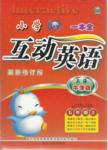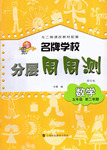Tens of thousands of theatre tickets will be given away to young people next year as part of a government campaign to inspire a lifelong love for theatre.
The plan to offer free seats to people aged between 18 to 26—funded with £2.5 million of taxpayers’ money—was announced yesterday by Andy Burnham, the Culture Secretary. It received a cautious welcome from some in the arts world, who expressed concern that the tickets may not reach the most underprivileged.
The plan comes as West End theatres are enjoying record audiences, thanks largely to musicals teaming up with television talent shows. Attendances reached. 13.6 million in 2007, up 10 percent on 2006, itself a record year. Total sales were up 18 percent on 2006 to almost £470 million.
One theatre source criticised the Government’s priorities(优先考虑的事) in funding free tickets when pensioners were struggling to buy food and fuel, saying: “I don’t know why the Government’s wasting money on this. The Yong Vic, as
The Times reported today, offers excellent performances at cheap prices.”
There was praise for the Government’s plan from Dominic Cooke of the Royal Court Theatre, who said: “I support any move to get young people into theatre, and especially one that aims to do it all over England, not just in London.”
Ninety-five publicly funded theatres could apply for funding under the two-year plan. In return, they will offer free tickets on at least one day each week to 18 to 26-year-olds, first-come, first-served. It is likely to be on Mondays, traditionally a quiet night for the theatre.
Mr. Burnham said: “A young person attending the theatre can find it an exciting experience, and be inspired to explore a new world. But sometimes people miss out on it because they fear it’s ‘not for them’. It’s time to change this perception.”
Jeremy Hunt, the Shadow Culture Secretary, said: “The real issue is not getting enthusiastic children into the theatre, but improving arts education so that more young people want to go in the first place. For too many children theatres are a no-go area.”
小题1:Critics of the plan argued that ______.
| A.the theatres would be overcrowded |
| B.it would be a waste of money |
| C.pensioners wouldn’t get free tickets |
| D.the government wouldn’t be able to afford it |
小题2:According to the supporters, the plan should ______.
| A.benefit the television industry |
| B.focus on producing better plays |
| C.help increase the sales of tickets |
| D.involve all the young people in England |
小题3:Which of the following is TRUE about the plan?
| A.Ninety-five theatres have received funding. |
| B.Everyone will get at least one free ticket. |
| C.It may not benefit all the young people. |
| D.Free tickets are offered once every day. |
小题4:We can infer from the passage that in England ______.
| A.many plays are not for young people |
| B.many young people don’t like theatre |
| C.people know little about the plan |
| D.children used to receive good arts education |
小题5:According to the passage, the issue to offer free tickets to young people seems ______.
| A.controversial | B.inspiring | C.exciting | D.unreasonable |

 Our Mutual Friend中是否提到过这一主题。因此选择D项。
Our Mutual Friend中是否提到过这一主题。因此选择D项。 根据文中最后一段的内容:…easily found on the Internet.可知A项正确;There are plenty of organized literary-themed tours around the city,…可知C项正确;If you take the Tube or the bus, make sure to carry a book可知D项正确;Or you can wander characteristically on your own, which is more fun.可知B项不正确,故选择B项。
根据文中最后一段的内容:…easily found on the Internet.可知A项正确;There are plenty of organized literary-themed tours around the city,…可知C项正确;If you take the Tube or the bus, make sure to carry a book可知D项正确;Or you can wander characteristically on your own, which is more fun.可知B项不正确,故选择B项。

 互动英语系列答案
互动英语系列答案 名牌学校分层周周测系列答案
名牌学校分层周周测系列答案